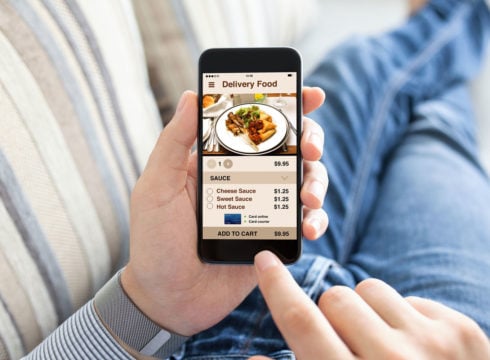Zomato recently announced its save plastic wastage programme
As and when these restaurants provide Zomato with their FSSAI licenses, they will be re-listed on Zomato
High-rated restaurants have been given time till September-end to furnish the licenses
Inc42 Daily Brief
Stay Ahead With Daily News & Analysis on India’s Tech & Startup Economy
Foodtech unicorn Zomato has announced that it will be delisting hundreds of restaurants that are not compliant with the regulations set by the Food Safety and Standards Authority of India (FSSAI) from its food delivery platform. It had earlier issued a deadline of July 31 for delisting of restaurants and food businesses that are non-compliant and don’t have licences from the FSSAI.
Notably, the development comes nearly a month after the FSSAI said that about 40% of the restaurants listed on online food delivery platforms such as UberEats, Zomato, and Swiggy have failed to meet their deadline for obtaining the licence.
Zomato claims to have joined hands with the FSSAI to take strict action in the interest of public health. The foodtech company has removed restaurants that haven’t been able to furnish an FSSAI license from its platform.
Zomato claimed that as and when these restaurants furnish their FSSAI licenses, they will be re-listed on the food delivery platform.
Some restaurants that have not been able to provide their FSSAI licenses but have high Zomato ratings and/or high repeat order volumes on the platform have been given until the end of September to furnish their licenses.
In a blog post, Deepinder Goyal, Founder and CEO, Zomato, said, “At Zomato, we care about our users as much as we care about our restaurant partners. Without a balance between these two elements, we wouldn’t be able to adhere to our long-held mission — better food for more people. However, it hurts us when regulations and hygiene standards are not followed by restaurants.”
“I personally wish to thank Pawan Kumar Agarwal, CEO, FSSAI, and fully support his organisation’s ongoing efforts toward a safer and better restaurant industry in India,” added Goyal.
Zomato launched its Food Hygiene Ratings last year to educate its users about the hygiene condition of restaurants. It now claims that it will start mandatory hygiene checks, following the food safety and hygiene checklist, before listing any cloud kitchen on its platform.
These hygiene checks are conducted by accredited third-party auditors who are experts on the matter.
Further, Zomato claims to have also onboarded thousands of new restaurants over the last two months and currently lists over 50K partners on its platform. The company has also joined the bandwagon to reduce plastic by offering customers an option to give up cutlery for every order.
Along the same lines, another foodtech unicorn Swiggy said that it had begun delisting in July. A Swiggy spokesperson told Inc42, “Starting in July, Swiggy has already delisted hundreds of restaurants that are not compliant to Food Safety and Standards Authority of India (FSSAI) regulations or have poor customer ratings. We have also set up an FSSAI Assist Program to help all non-compliant restaurants procure their licenses within the specified timeframe and currently aren’t onboarding any new restaurants without a license. Separately, Swiggy has also been working with Equinox Labs, a reputed food-audit firm accredited by FSSAI/ NABL on food hygiene audits that are conducted at restaurants to ensure the food is being prepared in accordance with the hygiene standards.”
The spokesperson added that Swiggy is also planning a big drive to improve hygiene measures in the ecosystem and will be sharing more details on that in the near future.
According to a recent RedSeer Consulting report, the number of daily orders from online food delivery platforms reported 15% growth on a quarterly basis from January to September last year.
The report estimated that India’s foodtech sector is set to grow at a similar pace in 2018 as well. It further noted, “It is time to work harder to ensure compliance as soon as possible with this new legal framework.”
After several instances of sellers being delisted from ecommerce platforms owing to poor quality products, the decision by the FSSAI and food delivery platforms like Zomato to ensure food safety is a step in the right direction.
Note: We at Inc42 take our ethics very seriously. More information about it can be found here.


